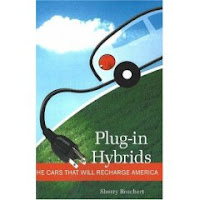Nukes: the position ridiculous and the expense damnable
From ANNE B. BUTTERFIELD
"The nuclear power that we have invariably gotten from the Washington sausage machine demands licenses without an impartial licensing process, public acquiescence without public involvement, spent fuel without a waste repository, multi-billion dollar projects without analysis of alternatives, nearly separated plutonium (per the Global Nuclear Energy Partnership) without adequate safeguards -- in short, a renaissance without masterpieces." -- Peter A. Bradford, former Commissioner of the Nuclear Regulatory Commission and senior utility commissioner. June 2007.
A vocal group of people in Boulder, and columnist Bob Greenlee in particular, have been crying out for a nuclear energy renaissance to stop the flow of carbon emissions now heating our globe. Some of these proponents even rant: "Anyone who doesn't want nuclear energy shows that they aren't serious about climate change."
Nuclear power has no carbon emissions! It's proven, and safe! Uh, well, never mind the oil-intensive efforts of mining and reprocessing uranium, or the chlorofluorocarbons coming out of refinement, or the transport of waste out to Yucca Mountain for burial.
Do we have mad hatters opining on mercury here? Why do conservatives like those at the Heritage Foundation complain about the subsidies going in to renewable energy like wind and solar, but love nuclear energy, which is nothing if not a pathway to socialized energy?
And the costs and subsidies of nuclear energy need to be weighed. The Economist Magazine observed, "Nuclear power, once claimed to be too cheap to meter is now too costly to matter." This riposte came out before the recent cost escalation of power plant construction as cement, steel and copper skyrocketed. Nuclear Engineering International Magazine published construction costs for nuclear plants ranging from $1,400/kw up to $6,000/kw installed.
The electrical power from nukes has been subsidized in recent years between 1-5c per kwh, and in 2005 it was raised to 5-9c per kwh for new plants. These new subsidies (along with loan guarantees that protect the Wall Street investors from construction delays and run ups) still do not entice investors such as Warren Buffet who recently got out of a nuclear project because it did not make economic sense. Buffet likes to invest in true free market scenarios, eschewing industries like the airlines, which are hammered by costs run up by regulation and unions.
Our local Rocky Mountain Institute issued an insightful report, "Forget Nuclear" revealing that what really matters is the most affordable way to displace coal power. Nuclear ranks sixth out of the seven options in the study, the most cost effective ones being end-use efficiency and recovered heat cogeneration. The cheaper modes (wind, gas turbines, cogen etc.) are more quickly deployed than nuclear, also they do not demand the excessive water of nuclear energy. Just last year the drought in the Southeast caused reactors to be shut down temporarily in Alabama and North Carolina for lack of cooling water.
Dr. Marty Hoerling of NOAA has outlined the high likelihood of long range drought afflicting the West as the planet warms. With our sun and wind and great technologies like thermal storage for dispatchable solar power, I don't see how we can justify nuclear here. Some complain that CSP's storage is not proven -- but it's certainly more proven than nuclear waste management.
Peter Bradford says it best: "Those who assert, 'Nuclear energy just may be the energy source that can save our planet from catastrophic climate change,' are inviting us into a dangerous la-la land in which nuclear power will be oversubsidized and underscrutinized while more promising and quicker responses to climate change are neglected."
The RMI study can be read at Rocky Mountain Institute and a complete report on subsidies can be downloaded from EarthTrack.












 Plug-in Hybrids, The Cars That Will Recharge America
Plug-in Hybrids, The Cars That Will Recharge America Oil On The Brain
Oil On The Brain